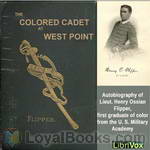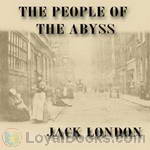|
Books Should Be Free Loyal Books Free Public Domain Audiobooks & eBook Downloads |
|
|
Books Should Be Free Loyal Books Free Public Domain Audiobooks & eBook Downloads |
|
Books of Memoirs |
|---|
|
Book type:
Sort by:
View by:
|
By: Henry C. Barkley (1837-1903) | |
|---|---|
 Studies in the Art of Rat-Catching
Studies in the Art of Rat-Catching
This book is often described as an instruction manual on the subject of rat-catching. It does indeed contain a good deal about rats, ferrets and dogs, but it is much more than that. Barkley fills the book with humour, sharp observation, and his sheer joy of living in the countryside. The framework of the book is indeed a course by fictional rat-catcher Bob Joy, who suggests that rat-catching might be a suitable alternative career for boys at Eton, Harrow and the other major English public schools... | |
By: Henry Dawson | |
|---|---|
 Trips in the Life of a Locomotive Engineer
Trips in the Life of a Locomotive Engineer
Henry Dawson has written several vignettes of railroad men from the days of steam locomotives. His goal is to show the reader that they are not just rough men, but are also brave and heroic men through descriptions of divers dangers encountered on the tracks. | |
By: Henry Ford | |
|---|---|
 My Life and Work
My Life and Work
Henry Ford profiles the events that shaped his personal philosophy, and the challenges he overcame on the road to founding the Ford Motor Company. Throughout his memoir, he stresses the importance of tangible service and physical production over relative value as judged by profits and money. He measures the worth of a business or government by the service it provides to all, not the profits in dollars it accumulates. He also makes the point that only service can provide for human needs, as opposed to laws or rules which can only prohibit specific actions and do not provide for the necessaries of life... | |
By: Henry James (1843-1916) | |
|---|---|
 A Small Boy and Others
A Small Boy and Others
A Small Boy and Others is a book of autobiography by Henry James published in 1913. The book covers James’s earliest years and discusses his intellectually active family, his intermittent schooling, and his first trips to Europe. | |
By: Henry Morgenthau (1856-1946) | |
|---|---|
 Ambassador Morgenthau's Story
Ambassador Morgenthau's Story
Ambassador Morgenthau’s memoirs of his years in the service of the United States in Constantinople, (today Istanbul), are an important primary historical resource for the study of the dissolution of the Ottoman Empire and the Armenian Genocide. During this genocide, approximately 1,500,000 Armenians living in Anatolia were murdered in an attempt to rid Turkey of its non-Turkish populations. Mr. Morgenthau left Turkey a frustrated man, having done all that he was able through diplomatic circles to halt the murders, to no avail... | |
By: Henry Ossian Flipper (1856-1940) | |
|---|---|
 The Colored Cadet at West Point
The Colored Cadet at West Point
Henry Ossian Flipper--born into slavery in Thomasville, Georgia on March 21, 1856--did not learn to read and write until just before the end of the Civil War. Once the war had ended, Flipper attended several schools showing a great aptitude for knowledge. During his freshman year at Atlanta University he applied for admittance to the United States National Military Academy at West Point. He was appointed to the academy in 1873 along with a fellow African American, John W. Williams. Cadet Williams was later dismissed for academic deficiencies. | |
By: Henry Vizetelly | |
|---|---|
 California
California
Vizetelly, writing under the pseudonym J. Tyrwhitt Brooks, recalls an expedition to California he took between 1847-1848 . Originally, he planned to enlist as a surgeon for the US Army during the Mexican war, but conflicts had ended by the time he applied. In a quick change of plans, he joined a group of prospectors on their way to the newly found gold fields of California. While he might not find service in the military, his training as a physician made him a valuable addition to the ragtag team of explorers... | |
By: Henry W. Lucy (1842-1924) | |
|---|---|
 East by West: a Journey in the Recess
East by West: a Journey in the Recess
East by West: a Journey in the Recess is an account of British journalist Henry Lucy's travels across America and on to the Far East during the parliamentary recess in 1883. Lucy was one of the most influential journalists of his day and, as "Toby M.P.", a noted humorist in Punch magazine. His acute powers of observation and light touch make this a most engaging book. It is a fascinating insight into the Englishman's travels abroad within two decades of the American Civil War and the end of Japanese isolationism... | |
By: Henry William Haygarth (1821-1903) | |
|---|---|
 Recollections of Bush life in Australia
Recollections of Bush life in Australia
This was written in the mid 1800’s at time when Australia saw an influx of immigration from Europe and when England was sending some prisoners to Australia rather than to prisons. Haygarth shows us what it is like, and what it takes, to live in the Australian Bush. He shows us about the different life on a cattle/sheep station, living miles from the nearest neighbor, getting to town just a few times a year and that it may be several hundred miles away. From his own experiences relates dealings with BushRangers (thieves), building and running a station, breaking wild horses, helping neighbors in times of need... | |
By: Herbert George Jenkins (1876-1923) | |
|---|---|
 Bindle
Bindle
Herbert Jenkins' most popular fictional creation was Mr. Joseph Bindle, who first appeared in a humorous novel in 1916 and in a number of sequels. In the preface to the books, T. P. O'Connor said that "Bindle is the greatest Cockney that has come into being through the medium of literature since Dickens wrote Pickwick Papers". The stories are based on the comedic drama of life at work, at home and all the adventures that take place along the way. Bindle leaves a path of good-natured destruction behind him and walks away unscathed every time... | |
By: Herman Charles Merivale (1839-1906) | |
|---|---|
 My Experiences in a Lunatic Asylum
My Experiences in a Lunatic Asylum
Fully titled My Experiences in a Lunatic Asylum, by a Sane Patient, this memoir describes its author's, Herman Merivale's, experience in one of England's countryside asylums during the 1860's. The main subject - in this case, the author - is less than justly sentenced to a facility for the mentally disturbed. Literally crazy caricatures abound, prisoner and jailer alike. Lofty psychology experts float in and out of Merivale's stay, some more respectable than others, but mostly clueless to patients' real needs... | |
By: Herman W. Mudgett (1861-1896) | |
|---|---|
 Holmes' Own Story
Holmes' Own Story
An account written by the infamous serial murderer H. H. Holmes in an attempt to exonerate himself while being tried for numerous crimes in Moyamensing Prison, Philadelphia. - Summary by Autumn | |
By: Hiram Bingham (1875-1956) | |
|---|---|
 Explorer in the Air Service
Explorer in the Air Service
Explorer Hiram Bingham discovered Machu Picchu in 1911, as recounted in his book Inca Lands, now released on Librivox at http://librivox.org/inca-lands-by-hiram-bingham/. In 1917, he became an aviator and organized the United States Schools of Military Aeronautics at eight universities to provide ground school training for aviation cadets, and then in Issoudun, France, Bingham commanded the primary Air Service flying school. He became a supporter of the Air Service in their post-war quest for independence from the Army and supported that effort, in part, with the publication of this book of his wartime experiences published in 1920 by Yale University Press. | |
By: Hiram Chase | |
|---|---|
 Two Years and Four Months in a Lunatic Asylum
Two Years and Four Months in a Lunatic Asylum
Hiram Chase is a well liked Reverend in a small ministry in Utica. When his mental and physical health deteriorates, he is taken to Utica lunatic asylum. After his stay in the asylum, Hiram documents his experiences and those of other patients in the asylum. He describes his daily routine and the negative experiences he had, along with praising certain individuals whom he met during his "Two Years and Four Months in a Lunatic Asylum". | |
By: Horatio Alger, Jr. (1832-1899) | |
|---|---|
 Helping Himself, or Grant Thornton's Ambition
Helping Himself, or Grant Thornton's Ambition
Helping Himself, or Grant Thornton's Ambition deals with the grit and determination of Grant, a 15 year old farmer's boy whose father is dead and in order to pay his minister father's debts, and to help his mother deal with their abject poverty young Grant postpones his college education to take a job as a Wall Street broker's clerk. The first step is to deal with the avaricious and greedy man who is keeping them from obtaining the meager amount due them and which will at least allow them to eat... | |
By: Howard Carter (1874-1939) | |
|---|---|
 Tomb of Tut-Ankh-Amen Vol. 1
Tomb of Tut-Ankh-Amen Vol. 1
On 26 November 1922, after eight years of work in the Valley of the Kings, archeologist Howard Carter discovered the tomb of Tut-Ankh-Amen, a pharaoh of the 18th dynasty . Different than all the tombs hitherto excavated, this was the first to be virtually undisturbed, and Carters words on a first look inside "Wonderful things!" have gone down in history. Excavating the tomb in full took eight years, and most of the 5,398 items that were found there are now on display in the Egyptian Museum in Cairo, with the exception of the mummy of Tut-Ankh-Amen that remained where it had been laid to rest... | |
By: Hugh Walpole (1884-1941) | |
|---|---|
 Jeremy And Hamlet: A Chronicle Of Certain Incidents In The Lives Of A Boy, A Dog, And A Country Town
Jeremy And Hamlet: A Chronicle Of Certain Incidents In The Lives Of A Boy, A Dog, And A Country Town
Hamlet is Jeremy’s dog. This 1923 book is Hugh Walpole’s second volume in his Jeremy semi-autobiographical trilogy , Jeremy at Crale ), about a ten-year-old English boy. One commentator wrote this of the first book: “With affectionate humor, Mr. Walpole tells the story of Jeremy and his two sisters, Helen and Mary Cole, who grow up in Polchester, a quiet English Cathedral town…. Mr. Walpole has given his narrative a rare double appeal, for it not only recreates for the adult the illusion of his own happiest youth, but it unfolds for the child-reader a genuine and moving experience with real people and pleasant things... | |
By: Ian Hamilton (1853-1947) | |
|---|---|
 Gallipoli Diary, Volume I
Gallipoli Diary, Volume I
| |
By: Ibn Battuta (1304-1368) | |
|---|---|
 Travels of Ibn Batuta
Travels of Ibn Batuta
Ibn Battuta , was a Moroccan explorer. Over a period of thirty years, Ibn Battuta visited most of the known Islamic world as well as many non-Muslim lands. His journeys included trips to North Africa, West Africa, the Horn of Africa, Eastern Europe, the Middle East, South Asia, Central Asia, Southeast Asia and China. Battuta is generally considered one of the greatest travellers of all time. This is a journal/record of his travels, omitting the translator's note and preface. NOTE: The material contains racial terms and ideas that are objectionable today. The final section speaks of cannibalism with the natives as the victims, for example. | |
By: Ida M. Tarbell (1857-1944) | |
|---|---|
 All in the Day's Work
All in the Day's Work
In this autobiography, written when the author was 82 years old, Ida Tarbell looks back at her life and remarkable career as an investigative journalist. Ms. Tarbell is best known for her 1904 work, "The History of the Standard Oil Company," which was a significant factor in the dissolution of the Standard Oil monopoly. She was a noted writer and lecturer, served on two presidential committees, and is considered by her actions to be an important feminist . - Summary by Ciufi Galeazzi | |
By: Ik Marvel (1822-1908) | |
|---|---|
 Reveries of a Bachelor
Reveries of a Bachelor
Reveries of a Bachelor, or A Book of the Heart, is a novel by American author Donald Grant Mitchell published under the pseudonym Ik Marvel. Paul, the protagonist, vividly and emotionally recalls his life and loves as he sits by his fireplace smoking a cigar, his old dog sleeping at his feet. He muses on boyhood, the country lifestyle and travel, but especially on the young women he knew, or perhaps imagines he knew, through the years. The first two reveries were originally serialized in a magazine, and subsequently all four were published in book format. A bestseller, it was one of poet Emily Dickinson's favorite books. | |
By: Irving Bacheller (1859-1950) | |
|---|---|
 Silas Strong
Silas Strong
Per the author: "The book has one high ambition. It has tried to tell the sad story of the wilderness itself—to show, from the woodsman's view-point, the play of great forces which have been tearing down his home and turning it into the flesh and bone of cities." But this story is much more than that. It revolves around Silas Strong and his distaste for the modernization and destruction of his beloved forest surroundings, and how it pleases him to teach younger folk how to appreciate that which has been given us... | |
By: Isaac Mason (1822-?) | |
|---|---|
 Life of Isaac Mason as a Slave
Life of Isaac Mason as a Slave
Isaac Mason was born into slavery. As a young man, he escaped to freedom and made a life for himself. An intelligent man, he gave lectures on his experiences and was later encouraged to publish them in book form. | |
By: Isabella L. Bird (1831-1904) | |
|---|---|
 A Lady's Life in the Rocky Mountains
A Lady's Life in the Rocky Mountains
Isabella Bird began travelling while in her early twenties to help alleviate illness that had plagued her since childhood. She was a single woman in her early forties when she made her treck through the Rocky Mountains. A Lady’s Life in the Rocky Mountains details this fascinating account of her travels through a series of letters written to her sister, Henrietta. These letters are filled with beautiful, vivid descriptions of the scenery, the people she encountered, the way of life, and a mountain man named Jim Nugent, that was as rough as they come, but a complete gentleman with Ms... | |
 Among the Tibetans
Among the Tibetans
Isabella L. Bird was an English traveller, writer and natural historian. She was travelling in the Far East alone at a time when such endeavours were risky and dangerous even for men and large, better equipped parties. In "Among the Tibetans", Bird describes her tour through Tibet with her usual keen eye: From descriptions of the landscape and flora to the manners, customs and religion of the local people we get a fascinating account of a world long past. | |
 Korea and Her Neighbors
Korea and Her Neighbors
In this book, Isabella L. Bird, who had been elected a Fellow of the Royal Geographical Society only 2 years prior, describes her travels through Korea from 1894 - 1897 in her well-known style. She went on lengthy trips through the interior of what is today both North- and South Korea and vividly describes the landscapes, people and customs of the "Hermit Kingdom". Isabella's sojourn coincided with a time of great turmoil in Korea. Shortly after her arrival, the Japanese occupied the country, ostensibly to protect their expatriate community... | |
By: Ivan Goncharov (1812-1891) | |
|---|---|
 Oblomov
Oblomov
Oblomov is the best known novel by Russian writer Ivan Goncharov, first published in 1859. Oblomov is also the central character of the novel, often seen as the ultimate incarnation of the superfluous man, a symbolic character in 19th-century Russian literature. Oblomov is a young, generous nobleman who seems incapable of making important decisions or undertaking any significant actions. Spoiled as a child to the point of not even being able to put on his own socks, Oblomov is unprepared to deal with the smallest difficulty of adult life... | |
By: J. M. Barrie (1860-1937) | |
|---|---|
 Tommy and Grizel
Tommy and Grizel
This book continues Sentimental Tommy, also in the catalogue. Tommy grows up and marries Grizel. But life is not only roses and rainbows. This book has all the elements of a good love story, but it is also a book about growing up and finding out your distinct voice in the world. - Summary by Stav Nisser. | |
By: J. Saunders Redding (1906-1988) | |
|---|---|
 On Being Negro in America
On Being Negro in America
A penetrating, insightful, and thoroughly honest view of one's life in the United States as an African-American. - Summary by KevinS | |
By: Jack London (1876-1916) | |
|---|---|
 John Barleycorn or Alcoholic Memoirs
John Barleycorn or Alcoholic Memoirs
Jack London died at the age of forty. In this autobiographical work, London describes his life as seen through the eyes of John Barleycorn (alcohol). There is much controversy about the cause of his death just as there is about alcoholism and addiction. London’s brutally frank and honest analysis of his own struggles and bouts with alcohol was way before its time and more modern theories of addiction. With remarkable candor and insight, London describes the demons and gods he encountered through both friend and enemy, John Barleycorn. | |
 The Cruise of the Snark
The Cruise of the Snark
The Cruise of the Snark (1913) is a memoir of Jack and Charmian London’s 1907-1909 voyage across the Pacific. His descriptions of “surf-riding”, which he dubbed a “royal sport”, helped introduce it to and popularize it with the mainland. London writes: Through the white crest of a breaker suddenly appears a dark figure, erect, a man-fish or a sea-god, on the very forward face of the crest where the top falls over and down, driving in toward shore, buried to his loins in smoking spray, caught up by the sea and flung landward, bodily, a quarter of a mile... | |
 The People of the Abyss
The People of the Abyss
Jack London lived for a time within the grim and grimy world of the East End of London, where half a million people scraped together hardly enough on which to survive. Even if they were able to work, they were paid only enough to allow them a pitiful existence. He grew to know and empathise with these forgotten (or ignored) people as he spoke with them and tasted the workhouse, life on the streets, … and the food, which was cheap, barely nutritious, and foul.He writes about his experiences in... | |